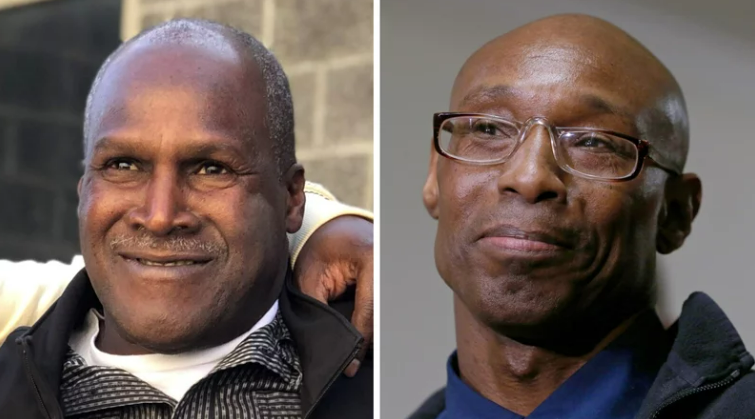Compensating the Wrongfully Convicted Remains an Arduous Process
Compensation statutes, methods, and amounts vary widely state to state

Malcolm Alexander ended up spending nearly 38 years in a prison cell and maintained his innocence the entire time. Eventually, he got legal counsel from the Innocence Project, who helped find the DNA evidence that finally cleared him of the crime. Alexander's sentence was overturned in 2018, and he is now fighting the state of Louisiana to receive financial compensation for the decades he lost.
"You have to look at the fact that we [were taken] out of society, that is where you have an opportunity to grow in life, to do something with yourself, you know what I'm saying? And here I am placed in an institution where my life, my prosperity have been completely halted," Alexander said.
Frederick Clay spent close to 38 years in prison for a wrongful conviction; he was released and exonerated in 2017. His story differs from Alexander's in one key way: after lawsuits and years of waiting, he received $1 million from the state of Massachusetts in 2019, some of which went to his lawyers.
"Even though [the state] recognized that I didn't receive a fair trial and I was exonerated, the state did not automatically give me money," Clay said. "I had to work. I had to also file a lawsuit. And [with that lawsuit] it took time for it to go through its process and for me to receive compensation."
How someone who was wrongfully convicted gets compensated, and how much money they receive, mostly depends on each state. There are three paths to financial compensation; state statutes, federal criminal rights lawsuits, and private bills passed in state legislatures.
Vanessa Potkin, director of special litigation at the Innocence Project, said state statutes require exonerees to prove, once again, that they are innocent, and some states limit the amount that can be paid when it's all said and done. Potkin was the attorney who worked on Malcolm Alexander's case. "Some states like New York have no cap, and the amount is assessed by the court," she said. "In other states, like Louisiana, the maximum amount that a person can recover is set, so there's a cap of $400,000."
A federal civil rights lawsuit may result in financial compensation of millions of dollars, given the right context. According to Jeffrey Gutman, a professor of clinical law at the George Washington University Law School, it hinges on demonstrating wrongdoing from a government entity. "The theory being that a government agency and or a governmental actor... It could be a prosecutor, it could be a police officer, a forensic scientist; it runs the gamut – acted in a manner that was unconstitutional," he said. "That unconstitutional misconduct caused the wrongful conviction."
The third method of getting compensation is a private bill passed in state legislatures, but, according to the National Registry of Exonerations, this is the rarest method because it requires strong advocacy to legislators and compelling stories that gather public attention.
To view a state-by-state review of exoneration compensation statues, you can view this PDF titled "Compensation Statutes: A National Overview" at the National Registry of Exonerations.










